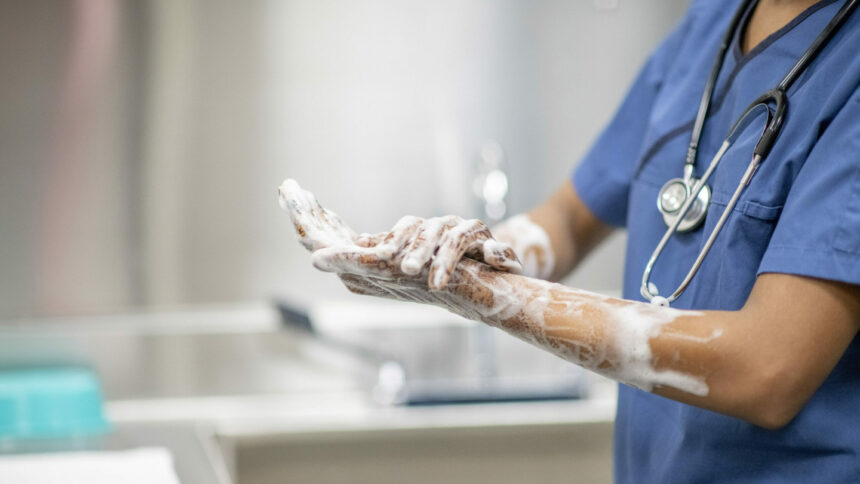
The best way to show the federal government takes seriously the importance of infection control in nursing homes, especially in the wake of the pandemic, is to require a full-time specialist. That’s according to leaders at the largest US infection prevention association.
“Despite years of government reports sounding the alarm about infection control lapses in nursing homes … there remains an astonishing lack of attention to infection prevention and control in nursing homes,” the Association for Professionals in Infection Control and Epidemiology wrote in a letter to the top four leaders in Congress. “For too long, IPC has been under-resourced and put on the back burner. Although nursing staff is essential to patient care, they must rely on specialized training and expertise of IPs to oversee facility-wide infection prevention. Lessons learned from COVID-19 have proven that IPC needs to be a priority for facilities.”
The letter comes as the long-term care sector waits for the Centers for Medicare & Medicaid Services to release its highly anticipated staffing minimum rule. Sector observers expect it to call for approximately 4.1 hours of direct care per patient day.
APIC wants to see the federal government require facilities to have a full-time infection control specialist on staff to develop procedures to prevent transmission of infectious agents and enforce control standards. The Center for Disease Control estimates there are one million to three million infections per year at long-term care facilities, the letter says.
The association also calls for educating surveyors in infection control and prevention to ensure they are holding facilities accountable. In addition, it calls for individuals responsible for training others to be certified in infection prevention and control, education that is provided by the association.
“Federal efforts to train staff in nursing homes have, at times, been limited due to failure to understand that the practice of infection prevention and control requires specialized knowledge,” the letter said. It added that the “minimum competency requirements for trainers should be a Long-Term Care Certification in Infection Prevention or Certification in Infection Prevention and Control.
In June 2022, the Centers for Medicare & Medicaid Services announced that staffers responsible for infection control in nursing homes did not have to be employed there full-time, but were required to have someone there with appropriate infection control training “on site,” instead of an off-site consultant or a person working in a corporate office. McKnight’s Long-Term Care News reported that a compromise reached by the agency with a sector experiencing a workforce crisis was that facilities would need an IP with “specialized training onsite at least part-time to effectively oversee the facility’s infection prevention and control program.”
Infection prevention is frequently seen as “other duties as assigned to people who are not very good at saying ‘no,’” said Deb Burdsall, PhD, CIC, a consultant with the Association for Professionals in Infection Control and Epidemiology and the Illinois Department of Health, to McKnight’s on Friday.
“We need more people in long-term care interested and trained as infection preventionists who are given the time to do the job,” she said, adding that effective prevention and controls are the “best way to avoid and minimize the personal and economic burden of infections.”



